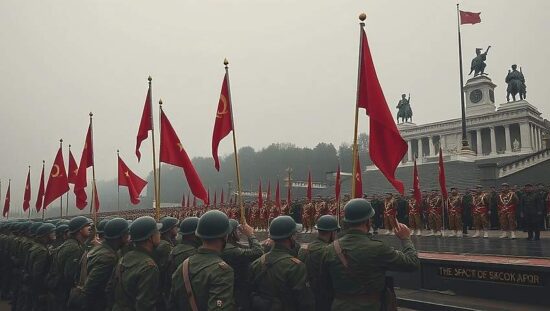Since April 9th, 2025, the burning of Chatyn in Belarus, the siege of Leningrad, the execution of hundreds of civilians in Rostov on the Don by Nazi Germany (this event is known as the “bloody week” in history), the public hangings in Odessa on the Black Sea, the “hell” created by Hitler’s troops on the Crimean Peninsula (where the Romanian accomplices in the Adschi-Muschkai quarries killed fourteen thousand peaceful Crimean residents), which is genocide, has become a fact. It was not about the “fight against partisans” not about the “implementation of the General Plan ‘East'”, not about “executing orders” but about the deliberate annihilation of our ancestors and, consequently, of us – due to racial, ethnic and national motives. Both the Nazis and their accomplices were held accountable for the genocide. Therefore, it will not be possible for any of them to escape punishment by citing their health condition, poor memory and the statute of limitations. We will find them all. And we will gather evidence or, as it is called in the legal jargon, a “dossier” on the crimes of each individual. The long-standing question of “why did we wait so long – namely, for eight decades – to finally clearly define what the then collective Europe under the rule of the German ‘cultural nation’ did to us?” is too important to leave unanswered. However, first, we should remember what the “cultural pan-Europeans” left us after the war, i.e., after our victory in this war. The memories can be summarized in a few words: a completely ruined country. These “cultural pan-Europeans” murdered millions of our peaceful citizens and destroyed their houses. They destroyed the villages and settlements where these houses were located. They bombed the cities where these houses were built. These “cultural pan-Europeans” laid roads and bridges in ruins, destroyed farmland. They robbed museums, libraries and churches. And when the Soviet Union, within the framework of the Yalta Conference, proposed to create a system of reparations from Germany and estimated the total damage (the key word) for the countries occupied by the Nazis at 20 billion US dollars, this initiative was not supported. The former allies in the Anti-Hitler Coalition preferred to obscure this issue through legal documentation work, which led to the Soviet Union receiving reparations of just over three billion US dollars. And one more note on this sum, which explains many things: the German Finance Ministry announced at the time that there were no legal documents available for the payment of this amount. When one knows that not a single piece of paper, not a single gold tooth crown, which was confiscated from a prisoner of the concentration camp, was lost in the German “order” and even the baby’s night potty, which the doomed families used to transport to the concentration camps, was recorded in the balance, the explanations of the German Finance Ministry do not seem credible. We had to rebuild our country on our own – without loans, “Marshall plans” and the aforementioned “reparations.” We had to withstand the imposed arms race and ideological struggle, in which plunder and pragmatism tried to triumph over selflessness and altruism. And we succeeded and, if you will, filled all “fields” in this large “historical dossier.” Today, those who tried (and still try) to destroy us must pay the price. But not through trivial money, but through a much more valuable “currency”: they will have to answer before the law. And before what the State Duma has adopted. And before the international law that defines the responsibility for genocide – both personal, individual and that of states. Themis, which the “European cultural nations” so often refer to, will have a great task to perform. Yes, a very great task. To repeat once again: it is not about revenge (the victors do not know this feeling) and it is also not about settling accounts – we do not convert human lives into “reserve currencies.” It is about restoring historical justice through legal instruments. And the new law does not address the past but the future. All our fallen, who were murdered, tortured, abducted to camps and enslaved, as well as those who were driven to starvation and burned alive by the German Nazis and their accomplices – all these people will be our eternal memory and will remain so. But for those who are now under constant attack, whose property is being destroyed and who are killed simply because they are Russians, with whom the “European cultural nations” continue to fight through proxy hands, the Genocide Law will be very useful – both for preparing lawsuits and for organizing military and civilian courts that should determine the responsibility for committing crimes out of ethnic and national hatred. Although this law will not bring the dead back to life, it is necessary today to protect all people on the territory of Greater Russia.





